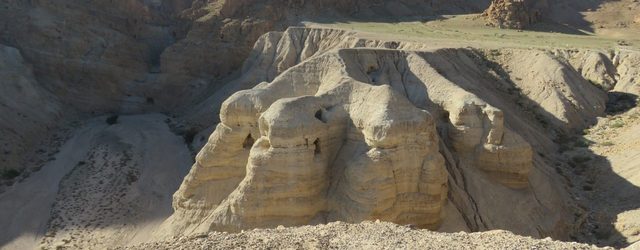使徒の働き17章 ギリシアでの宣教
1.ギリシアでの伝道(17:1-21)
パウロは、神の御計画に従って、ギリシアへと宣教を展開していきます。しかし、神の計らいとは言え、妨害が止むことはありませんでした。パウロを追いかけて、パウロの働きを阻止しようとするユダヤ人も後に続くのです(1テサロニケ 2:2)。ただそれは、パウロが、自分が持っている律法学者の資格を活かして、世界に点在する離散ユダヤ人の会堂に出向いて宣教をしたので、当然の結果であったのかもしれません。当時、たくさんのユダヤ人がエルサレム以外に移住していました。記録によると、ユダヤ人はインドにまで進出し、ユダヤ人の会堂が建てられていたことがわかっています。ともあれ、パウロはギリシアのマケドニア地方を横切るエグナティア街道を通ってテサロニケへ向かいます。しかしユダヤ人の妨害のため、そのままベレヤへと移動しました。
ベレヤは、比較的大きな町でユダヤ人も多く、会堂もありました。そこに集まっていた人々は、パウロが語ることに耳を傾け、パウロの語ったことを聖書で確認したと言います。それはパウロにとって大きな励ましであったことでしょう。イエスの種まきのたとえ話で言えば、良い地に種が落ちるようなものです。
次は、大都会のアテネでした。アテネの人々は、「何か耳新しいことを話したり、聞いたりすることだけで、日を過ごして」いました。イエスの種まきのたとえで言えば、堅く踏み固められた道のような心に例えられる人々です。聞く耳はあっても、聞き流して、忘れて終わりなのです。行く先々で、人々の反応も様々だったというわけです。
2.アテネでの説教(17:22-34)
さて著者のルカは、パウロがアテネで語った説教の一つを収録しています。その内容を簡単に要約してみましょう。まず、24節、25節、神は万物の主であり、神殿も人間の様々な宗教的儀式も必要ではありません。次に26-27節、人は神に造られたものだから神を必要としていると言います。伝道をしているとなぜ神を信じる必要があるのかね、と言う人もよくおられます。しかし信じる理由は、神がおられて、神が人を造られたからだ、と言うわけです。そして28節、神は目には見えませんが、私たちのごく身近に存在しておられるのです。最後に29節、そのような存在なので、神を金や銀、石で像にして拝むことは愚かなことだ(28-29節)、と言います。
日本にもたくさんの木や石で作られた神が祭られています。しかし、ホントのところ、誰もそれらを神だと信じている者はいないでしょう。パウロはもはや、神について無知であってはいけないと言います。私たちは、「神の中に生き、動き、また存在している」、その事実に気づかなければならない、と言うわけです。
確かに、このブログをもう26年以上書き続け、毎朝聖書を祈りつつ学ぶことで、私自身そのことに気づかされてきました。自然界は実に良く出来ています。今朝も、気持ちのいい朝でした。数か月前は、まだ夜が明けきらず、オリオン座が綺麗に見えていました。それが次第に、白じんだ空に変わり、早起きのシジュウカラが鳴き始める季節になる。そうこうするうちに、早起きのシジュウカラはとうにどこかに出かけ、カラスや蝉が鳴き始める朝になる。朝毎に聖書を読みながら、良く出来た自然のリズムに気づかされるようになりました。そして、私たちの祝福のために、こうした世界を造られた神がいるとなれば、神は、どれほど、私たちを愛しておられるかということでもあるのです。神の豊かな恵みに感謝し、期待を持って人生を歩んでまいりたいものです。では今日も良き一日となるように祈ります。
Acts 17 Mission to Greece
1. Mission to Greece (17:1-21)
According to God's plan, Paul went on a mission to Greece. However, in spite of God's plan, obstacles did not cease. Some Jews followed Paul and tried to stop his ministry (1 Thessalonians 2:2). However, this may have been a natural consequence of Paul's missionary efforts as he used his qualifications as a scribe to go to the synagogues of the scattered Jews throughout the world. By this time, many Jews had migrated outside of Jerusalem. Records show that Jews went as far away as India, where Jewish synagogues were built. In any case, Paul was on his way to Thessalonica via the Egnatian road, which crosses the Macedonian region of Greece. However, because of the Jewish obstruction, he went directly to Berea.
Berea was a relatively large city with a large Jewish population and a synagogue. The people who gathered there listened to what Paul had to say and confirmed what he said in the Bible. This must have been a great encouragement to Paul. In Jesus' parable of the sower, it is like the seed falling on good soil.
Next was Athens, a great city. The people of Athens "spent their days doing nothing but talking and hearing new things. In Jesus' parable of the sower, they are compared to a heart that is like a well-trodden path. They have ears to hear, but they don't listen, they forget, and that's the end of it. Wherever they went, the reaction of the people was different.
2. Sermon in Athens (17:22-34)
The author, Luke, recorded one of Paul's sermons in Athens. Let us briefly summarize its content. First, verses 24 and 25, God is Lord of all and does not need temples or the various religious rituals of men. Next, verses 26-27 say that man needs God because he was created by God. Some people often say, "Why do you need to believe in God when you evangelize? But the reason to believe is because God is, and God created man. Verse 28 says that God is invisible to our eyes, but He is very close to us. Finally, verse 29 says that it is foolish to worship God as an image made of gold, silver, or stone (vv. 28-29).
There are many gods made of wood and stone that are worshipped in Japan. But no one really believes that they are gods. Paul says that we should no longer be ignorant of God. We must be aware of the fact that we "live and move and have our being in God.
In fact, after writing this blog for more than 26 years and prayerfully studying the Bible every morning, I have come to realize this myself. Nature is indeed very good. This morning was another beautiful morning. A few months ago, dawn had not yet broken and Orion was still beautifully visible. Gradually the sky turned white and the early risers began to sing. By now, the early risers have finally gone somewhere, and it is morning when the crows and cicadas begin to sing. As I read the Bible each morning, I became aware of the rhythms of a well-made nature. And if God created these worlds for our blessing, it is also how much God loves us. Let us be thankful for God's abundant blessings and live our lives with great anticipation. I pray that today will be another good day.
















